Current Trends in The Hospitality Industry


The travel and hospitality industries were severely and badly affected by the COVID-19 pandemic. The demand for travel is now returning and hotels are welcoming guests in renewed numbers. However, businesses are adapting to the latest trends in the hospitality and travel industries to provide guests with safe and comfortable conditions, reflecting the extra demands that the pandemic has brought. Digital transformation and automation of processes can greatly support this adaptation.
In America, the U.S. Bureau of Labor Statistics claims that the hospitality industry is recovering. Employment within the industry increased by 280,000 jobs in March, following the addition of 355,000 jobs in February after a loss of 61,000 jobs in January. The demand for travel is returning, and 87% of people want to travel in the next six months from the low 60% in March 2021. Digital trends play an important role here.
Hotel Automation and Post-Pandemic Trends
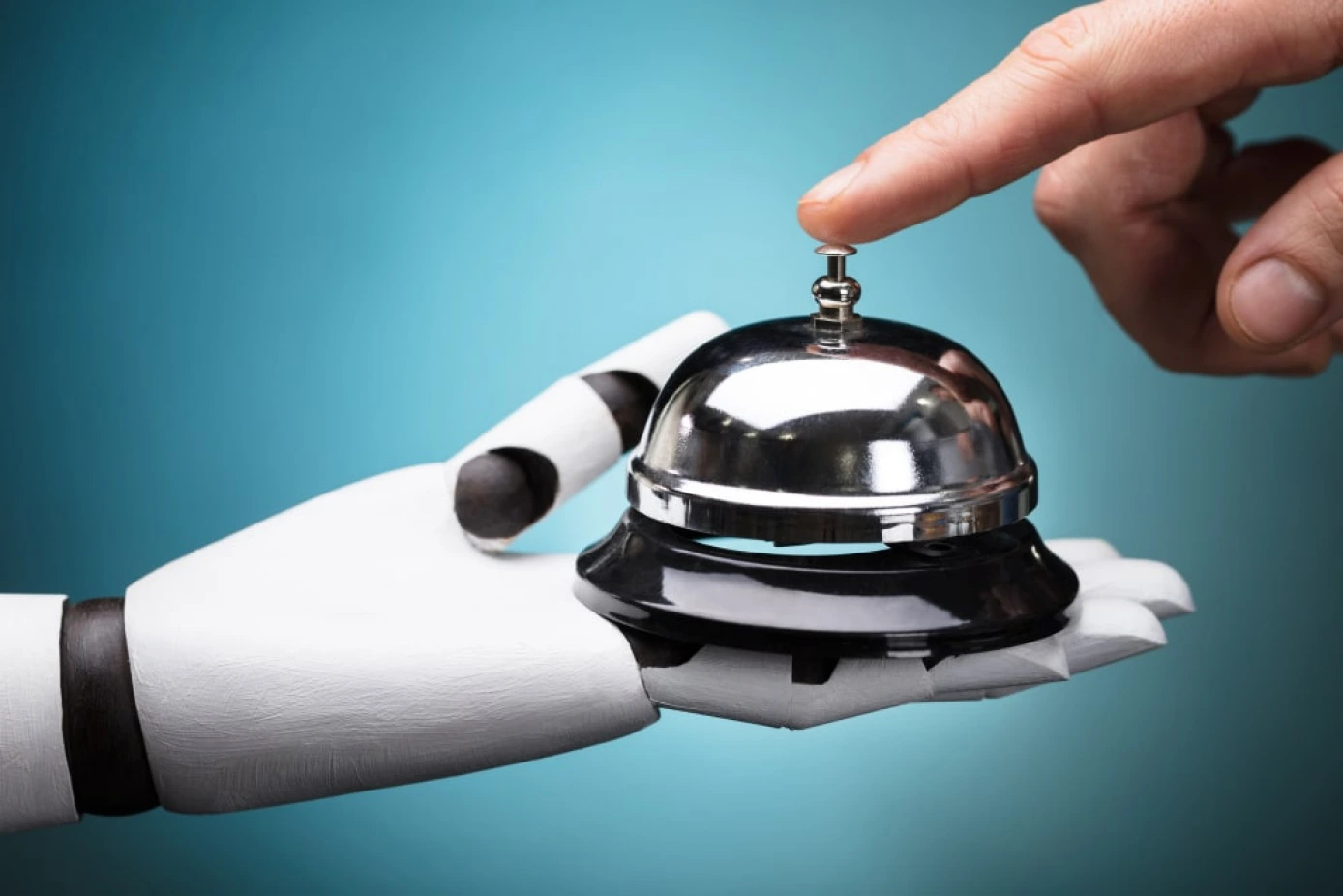
The hospitality industry had to make changes to stay in business. Even more, digitalisation was essential and was one of the core hospitality trends. The provision of customer service needed to change if a business were to survive. According to the media platform, HotelTechReport, a new era for software development companies since the pandemic has been a great equalizer and will significantly accelerate a digital transformation in the hospitality industry.
Automation is a primary trend in the travel and hotel industry. Travellers and guests now control many decision-making processes in a broad self-service experience. Online registration, self-service kiosks, and online questionnaires are several examples of how users can do everything independently without staff involvement. However, control of functionality still needs to be performed by humans.
According to the market and consumer data website, Statista, in February 2021 hoteliers in Asia, Europe, and North America were surveyed on why they used technology in their business. 24% stated that improvement to the guest experience was the main reason for tech integration. Only 5% of them indicated time-saving as the reason. The industry wants to attract guests with better services, not simply time-saving. It is seen as essential to build transparent and trustful relationships with customers.
Businesses in the hospitality industry needed to adopt or improve a customer-centric and tech-leveraged approach to keep growing and building their revenue.
According to a study by the European Travel Commission, a strategic partner of the European Union Commission, 46,6% of Europeans are likely to book their next trip via an online booking engine and 26,7% directly through the hotel website. It means that people tend to go online to manage all booking processes.
The Hilton group created its own app in 2015, long before the pandemic hit the industry. Features such as a digital key and contactless check-in were already available for guests but the pandemic pushed guests into using these features more. According to U.S. News, Hilton reported that the number of guests who opted to use a digital key had almost doubled by the end of 2020 compared to 2019.
Not all hotels were so advanced and many then turned to tech integration to provide guests with new automated solutions.
Automation Benefits for the Hospitality Industry
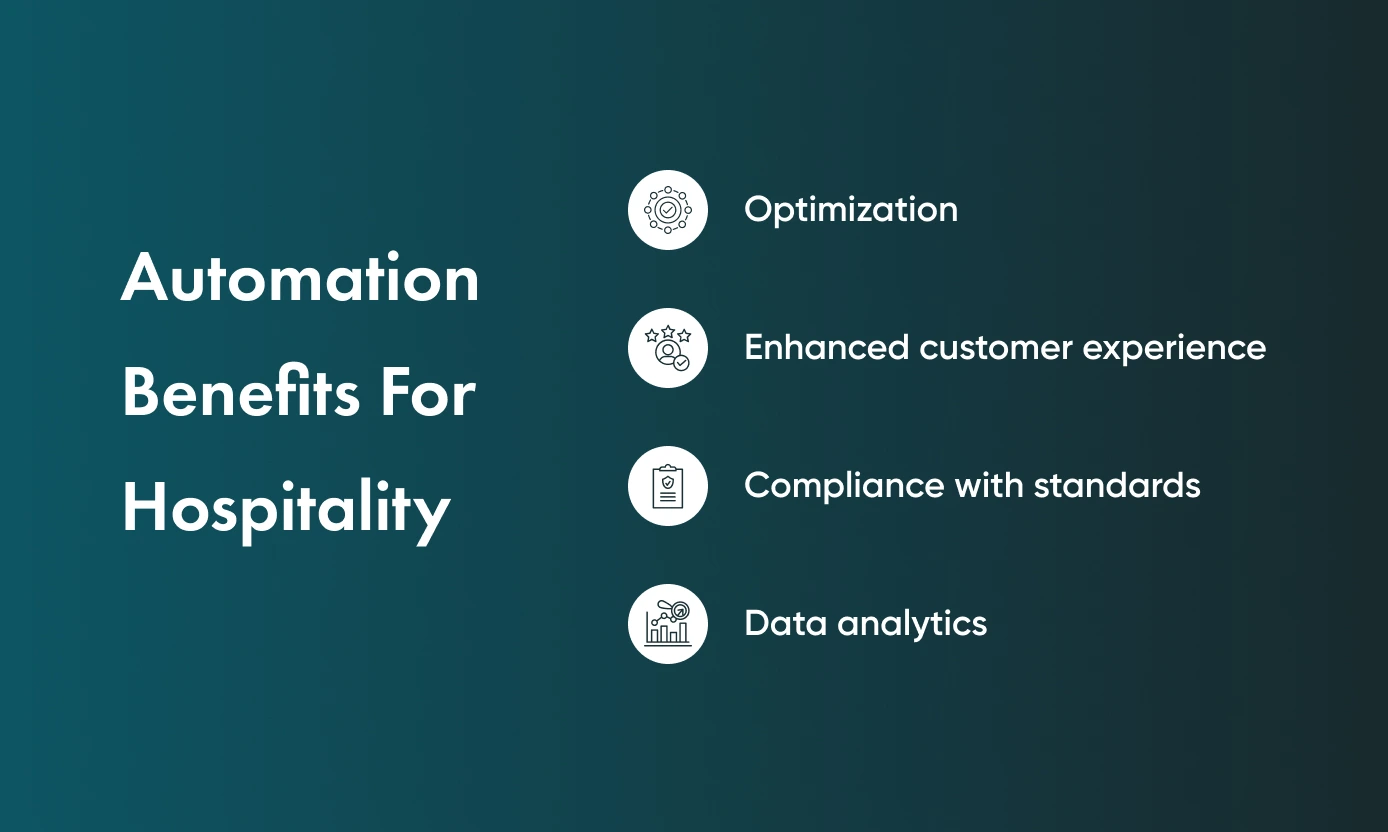
Optimisation
It is much easier to assign tasks to personnel via automated hotel management systems, so each employee can see what should be done, when, and who is in charge of the job.
Compliance with standards
Automation allows hoteliers to build a set of internal standards and internal automated systems to monitor compliance with these standards.
Enhanced customer experience
A hotel automation system helps managers monitor how guest requests are processed and satisfied. Where requests are not satisfied or resolved, the system supports the avoidance of mistakes in the future.
Data analytics
Information and results are stored in the automation software. This enables a management team to continuously monitor the efficiency of the hotel and guest satisfaction and to identify possible bottlenecks in services.
Technological Trends To Improve The Automation Process
The travel industry trends show the way to a competitive edge in the hospitality business and more automated processes for guests and staff.
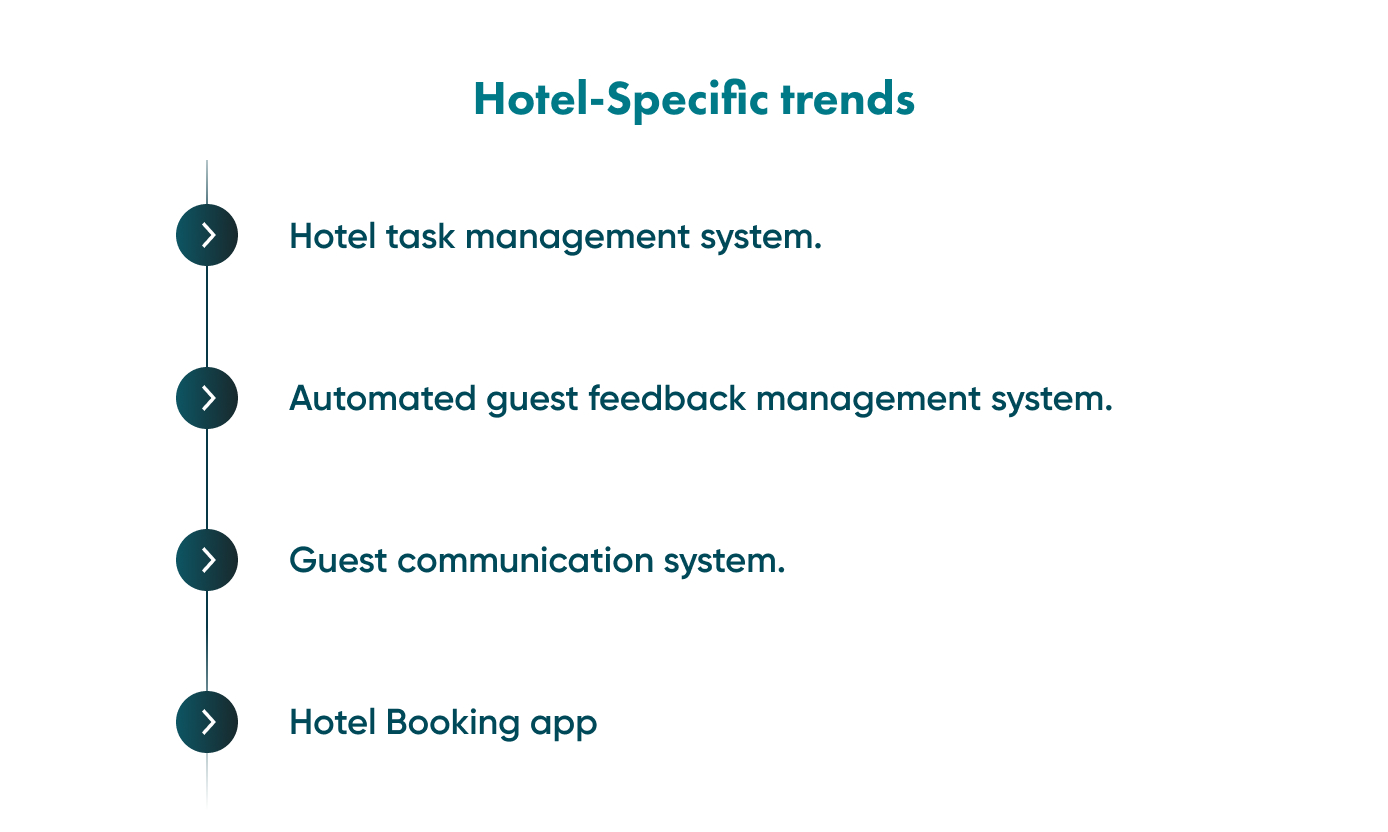
Hotel task management system
When customers don’t receive a timely response to their request, they may well choose another hotel. An appropriate automated system supports a high level of service. Tasks are assigned to relevant staff and automated alerts help timely completion.
Automated guest feedback management system
Hotels can use an automated system to respond to negative reviews as quickly as possible. For example, Radisson Hotel Group applied this system to feedback management and reduced their response time to within 2 days compared to 6-7 days before system integration.
Guest communication system
Apparently, about 63% of all customer questions are related to the same 8 issues. Chatbots can be used to reply to questions automatically round the clock, leaving staff more time for other tasks.
Go Wombat’s Expertise
At Go Wombat, we create automated systems for our clients in the hospitality industry. Our staff work with an srprs.me service (pronounced as “Surprise me”) which gives travellers an exciting experience of travelling to an unknown destination. Users choose the type of vacation they want, and the company is preparing a tour with accommodation and air flights included. The company asked us to resolve some issues. Their employees were having to perform many manual operations to provide the correct type of vacation for each user. It was necessary to automate manual processes to reduce the time spent on these operations. Our developers built an algorithm for the automated booking and selection process. We are now working on the integration of the developed system into an srprs.me service which will improve operational efficiency.
Hire an experienced Python app development team. Contact us!
Hotel booking apps
Online reservation is very popular and users can book accommodation in any hotel with a booking app in just a few clicks. Payment can also be made online. Considering changing trends in hospitality, this capability will remain on top for many years to come.
Go Wombat is proud of Desty, an all-in-one platform for online travel agencies which simplifies and speeds up travel booking. It is a B2B platform that can be integrated into an agency’s website, allowing users to book comprehensive packages including accommodation, air tickets and other requirements. Staff manage these packages, but users can customise packages to their requirements (for example, they can change dates).
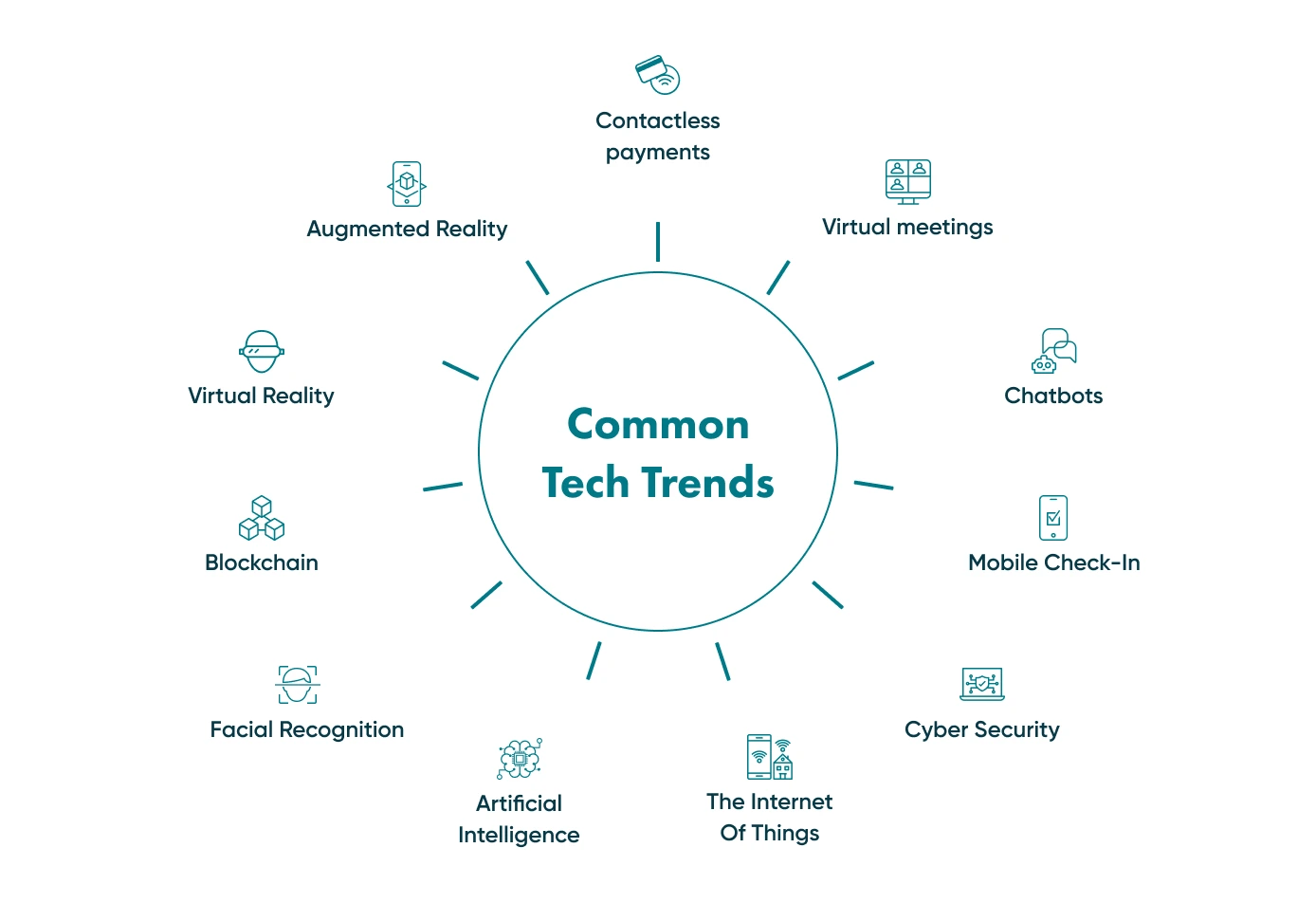
Contactless Payment
Hospitality industry trends include contactless payments which became essential during the pandemic. Previously, contactless payments were available only with payment cards but the advent of wearables and mobile wallets increased the scope of contactless payments. Hotels have expanded the use of contactless technology to provide more health safety for their guests.
Virtual Meetings
With restrictions on travel and personal contact during the pandemic, virtual meetings through video-conferencing apps rapidly became an accepted norm. The integration of messaging apps into working processes also increased.
Chatbots
Even though chatbots are not new, hospitality and travel trends in 2022 show the growth of their popularity. Hotels integrate chatbots into their websites and mobile apps and provide them with prompt answers round the clock. Language configurations in chatbots enable replies in the user’s chosen language.
Mobile Check-In
Mobile check-in is a primary trend in the elimination of routine processes and reducing person-to-person contact. Guests can check in to a hotel using a pre-installed mobile app. They, therefore, avoid time spent queueing, making the travel experience much more convenient.
Cyber Security
Protection of customer data is vital. Phishing, DDoS attacks and malware present threats to a hotel’s website and customer database. Remote working by employees increases security risks and additional security layers have to be added to hospitality software to avoid cyber attacks. Hospitality technology trends show that investment in security improvement is crucial for hotels and travel agencies if they don’t want to lose customers.
The Internet of Things (IoT)
Smart devices around a hotel, not only support contactless payments and self-service kiosks but can smooth the guest experience. The IoT connects devices and guests can customise the environmental setting in their room by controlling lighting, air conditioning or heating with a click of a mobile app button or an integrated voice-controlled customer service.
Artificial Intelligence
AI contributes to building a personalised experience, (identification of user preferences to attract customers) and automating communication processes (chatbots as an example). Hospitality industry trends in 2022 will certainly include AI since it provides many opportunities for hoteliers to automate their processes.
At Go Wombat, we create many AI- and machine learning-based apps, using the Python software development language.
Contact us for assistance in your project.
Facial Recognition (FR)
Works on AI and is very helpful for customer-centric services such as access to hotel rooms and airport passport checks. It may even replace mobile check-in, recognising guests as they arrive at a hotel. FR can be used to control access to specific areas for authorised personnel only.
Blockchain
Is among the new trends in hospitality. It is a decentralised system which allows for making more transparent and secure payments. In the hospitality industry, guests can pay for accommodation with cryptocurrency using their crypto wallets. Blockchain is also used for identity verification or baggage tracking.
Virtual Reality
VR is used by many hotels for tours of the facilities on their websites. Potential guests can see the layout of the hotel, restaurant, or lounge area.
Augmented Reality
AR is used mainly in mobile applications. In the hospitality industry, AR provides guests with interactive rooms where they can move or add objects. Gamification is another way to improve customer experience and add gaming elements to travel and stay in a hotel.
Unlock Success with Premium Software Development
Contact us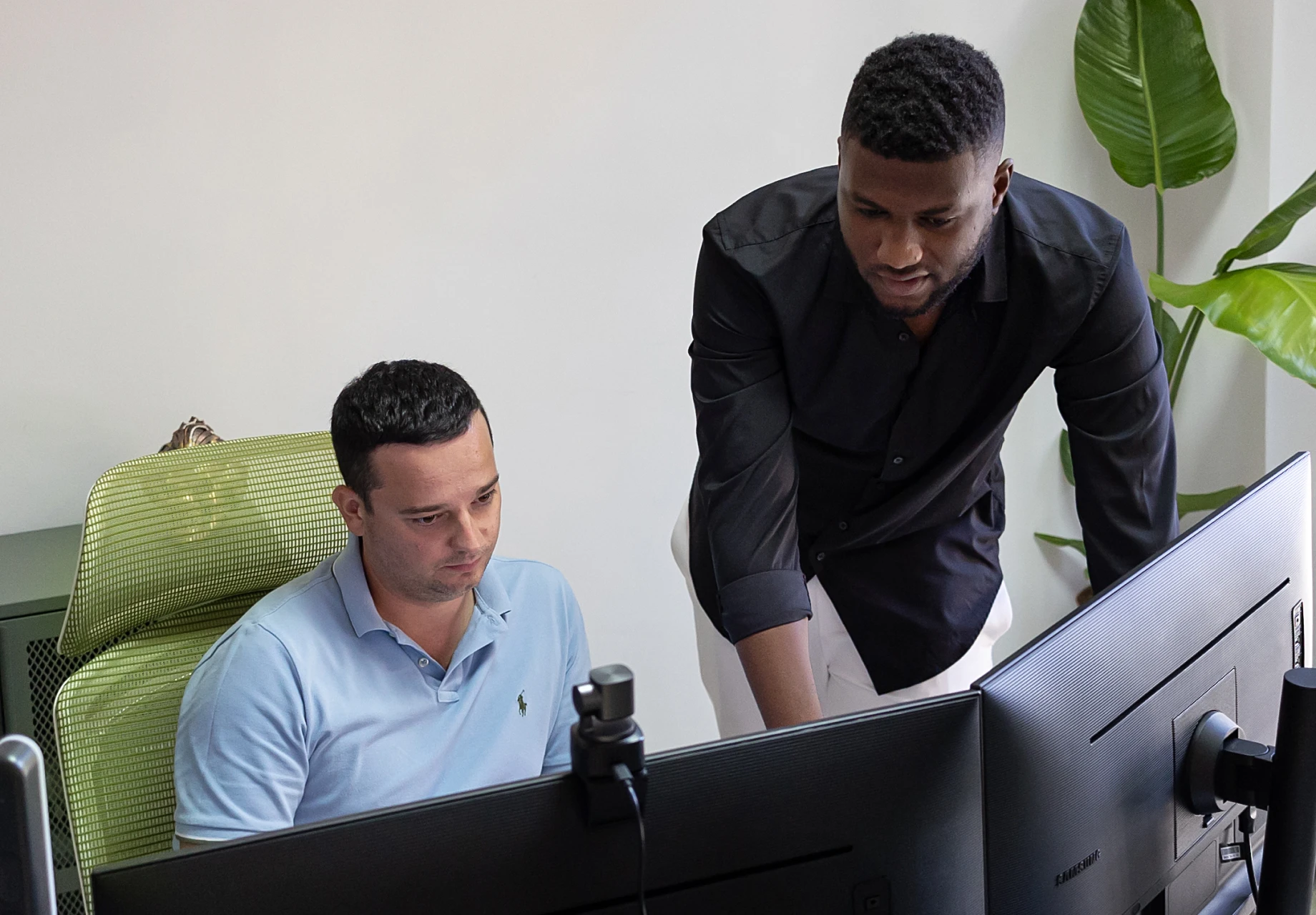


Conclusion
After the forced hiatus, the travel and hospitality industries are slowly bouncing back. The demand for travel and holidays is now returning with increasing numbers. During the long absence of trade, businesses took the opportunity and adapted to the latest trends in hospitality and travel. The notion was to provide guests with safer and more comfortable conditions, reflecting the extra demands that the pandemic brought. The most efficient, convenient, and supportive way of tranforming the industry is through the digital automation of processes.
Go Wombat is an expert in software development and IT consultancy for the hospitality and travel industries. For your project idea or a consultation, contact us.
How can we help you ?






